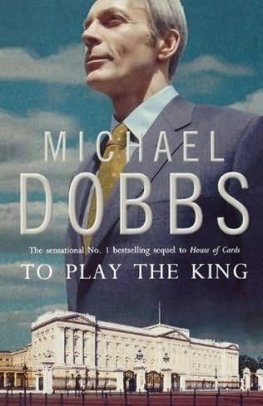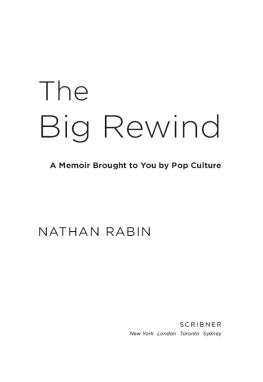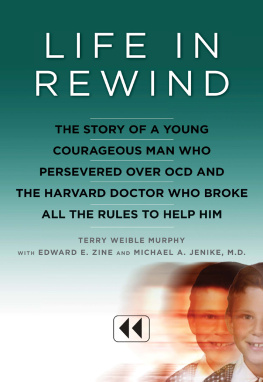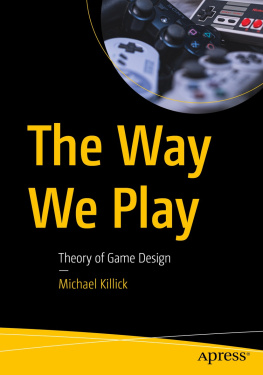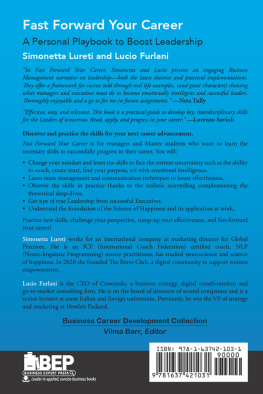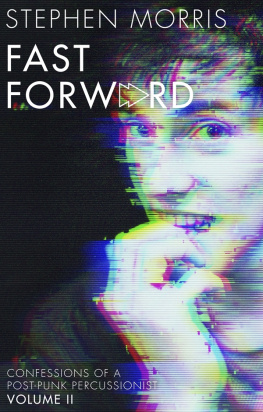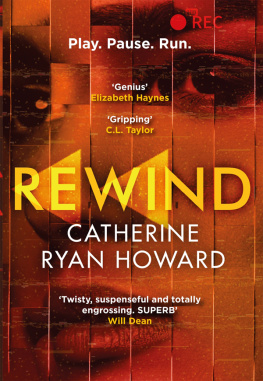Michael Oberman - Fast Forward, Play, and Rewind
Here you can read online Michael Oberman - Fast Forward, Play, and Rewind full text of the book (entire story) in english for free. Download pdf and epub, get meaning, cover and reviews about this ebook. year: 2020, publisher: Backbeat, genre: Non-fiction. Description of the work, (preface) as well as reviews are available. Best literature library LitArk.com created for fans of good reading and offers a wide selection of genres:
Romance novel
Science fiction
Adventure
Detective
Science
History
Home and family
Prose
Art
Politics
Computer
Non-fiction
Religion
Business
Children
Humor
Choose a favorite category and find really read worthwhile books. Enjoy immersion in the world of imagination, feel the emotions of the characters or learn something new for yourself, make an fascinating discovery.

- Book:Fast Forward, Play, and Rewind
- Author:
- Publisher:Backbeat
- Genre:
- Year:2020
- Rating:4 / 5
- Favourites:Add to favourites
- Your mark:
- 80
- 1
- 2
- 3
- 4
- 5
Fast Forward, Play, and Rewind: summary, description and annotation
We offer to read an annotation, description, summary or preface (depends on what the author of the book "Fast Forward, Play, and Rewind" wrote himself). If you haven't found the necessary information about the book — write in the comments, we will try to find it.
Fast Forward, Play, and Rewind — read online for free the complete book (whole text) full work
Below is the text of the book, divided by pages. System saving the place of the last page read, allows you to conveniently read the book "Fast Forward, Play, and Rewind" online for free, without having to search again every time where you left off. Put a bookmark, and you can go to the page where you finished reading at any time.
Font size:
Interval:
Bookmark:

Backbeat Books
An imprint of The Rowman & Littlefield Publishing Group, Inc.
4501 Forbes Blvd., Ste. 200
Lanham, MD 20706
www.rowman.com
Distributed by NATIONAL BOOK NETWORK
Copyright 2020 by Michael Oberman
All rights reserved. No part of this book may be reproduced in any form or by any electronic or mechanical means, including information storage and retrieval systems, without written permission from the publisher, except by a reviewer who may quote passages in a review.
The articles on which much of this book is based originally appeared in The Evening Star .
Text permissions can be found on page 447, which can be considered an extension of this copyright page.
British Library Cataloguing in Publication Information available
Library of Congress Cataloging-in-Publication Data available
ISBN 978-1-4930-5092-5 (paperback)
ISBN 978-1-4930-5093-2 (e-book)
 The paper used in this publication meets the minimum requirements of American National Standard for Information SciencesPermanence of Paper for Printed Library Materials, ANSI/NISO Z39.48-1992.
The paper used in this publication meets the minimum requirements of American National Standard for Information SciencesPermanence of Paper for Printed Library Materials, ANSI/NISO Z39.48-1992.
This book is for my brother, Ron
8/28/1943 to 11/21/2019
AS I FINISH WRITING THIS BOOK, I AM SAD TO SAY THAT MY BROTHER, RON, passed away on November 21, 2019, after a ten-year struggle with fronto-temporal dementia.
Growing up, Ron was my big brother. He is three years and five months older than me, and I wish this book were a collaboration with him. That is what it started out to be. Ron wrote the weekly Top Tunes interview column in the Evening Star newspaper in Washington, D.C. (hereinafter D.C.), from 1964 until February 1967. In February 1967, Ron left music journalism for a job at Mercury Records in Chicago. I took over the Top Tunes column (later renamed Music Makers) when Ron left and continued writing the weekly column from February 1967 until March 1973.
Between us, we wrote approximately 450 interview columns (Ron 150 and me 300), interviewing a whos who of rock-and-roll stardom, with an occasional country, pop, jazz, or bluegrass artist thrown into the mix.
If not for Ron, I would not have entered the world of journalism and eventually the world of the music business. More about that later in this book.
Rons career path took him from Mercury Records to Columbia Records to MCA Records. When he left Mercury, he was the national director of publicity. His career at Columbia took him from the marketing department to the A & R (artist and repertoire) department, where he became vice president. He left Columbia for a job at MCA as senior vice president of A & R and retired from MCA as executive vice president of A & R.
During Rons time at those three labels, he played a major part in the careers of David Bowie, Bruce Springsteen, Warrant, the Bangles, Toad the Wet Sprocket, and too many others to name here.
When Ron left the music industry, he became a serious poker player. Like most other things in life, he did very well at the poker tables.
In 2009, Ron and I decided to write a book together. The working title at the time was Backstage Pass. Ron was living in Los Angeles, and I was in Columbia, Maryland. Since there were more opportunities to find a literary agent in Los Angeles than in Columbia, Ron took on that task. Within a week, we had an agent. While the main idea for the book was to publish one hundred or more of our columns and write some remembrances of writing for a newspaper, meet and interview incredible musicians, and paint a picture of the music culture starting with the Beatles first U.S. concert in D.C., the beginning of Rons dementia brought the project to a halt.
Before he was diagnosed with his illness, Ron and I would send each other chapters we had written. I immediately noticed that Rons writing had no life to it. Ron was planning a trip back to Maryland for our mothers ninetieth birthday, so I decided to wait to speak to him in person. When he came back to Maryland, I noticed a distinct change in his personality. I asked him what was going on. He told me he had been diagnosed with clinical depression. He also mentioned that he was separated from his wife. I suggested that we hold off writing the book until he felt up to the task. At that time, I had no idea that my brother had been misdiagnosed. Our mother also noticed the change in Rons personality. I told her that Ron was going through some marital difficulties and that he would be okay.
When Ron returned to Los Angeles, I called our literary agent and told her we were putting the book project on hold. She wanted out of the project anyway because she felt that Ron had some mental problems. Shortly after that, the results of a PET scan showed that Ron had frontal lobe atrophy (the beginning of frontotemporal dementia).
Rons diagnosis was devastating but explained his personality changes and his inability to write anything but simple sentences. Our dream of coauthoring a book was over. Additionally, I became primary caregiver for our mother and decided that authoring a book myself would be too difficult.
Things changed when our mother passed away. I began writing again. Caregiving for my mother had drained me, though I am glad I did it. One of the obstacles that we had to overcome back in 2009 was getting permission to use our music columns that had been published in the Evening Star , later renamed the Washington Star . The Star had been in business from 1852 until it closed in 1981. All editions of the newspaper had been preserved on microfilm and microfiche and were stored in the Washingtonia collection at the Martin Luther King Library in D.C.
I spent several days at the library making copies of all of our columns. The Washington Post now owned the copyright to all 129 years of the Evening Star . I found out that the Post was having all of the editions of the Star digitized. We were granted permission to use our columns in a book as long as we transcribed them and didnt just put out a book with photocopies of our columns.
I know that Ron would be happy if he knew that I had taken on this project. I only wish that he was part of it more than just in spirit.
Our interview columns were short form, usually 400 to 600 words. I consider them small time capsules of (to me) one of the most important eras in rock n roll, spanning the Motown era and the British invasion and folk, psychedelic, and other styles of music that defined the times.
It wasnt easy for me to pick which of my 300-plus columns to include in this book. I chose a number of well-known artists, such as Joni Mitchell, David Bowie, the Doors, and James Brown. I also have included some onehit wonders and a few lesser-known groups whose music still holds up today.
What is missing from the book are my brothers columns. Perhaps one day Ill write another book and include his columns. For now, to give you an idea of the range and importance of Rons interviews, a chronological list of his columns will have to suffice:
1964
The Marketts
The Beatles
James Brown
The Four Seasons
The Beach Boys
Diane Renay
Elvis Presley
Betty Everett
Marvin Gaye
Terry Stafford
The Reflections
Peter and Gordon
Mary Wells
The Dave Clark Five
The Dixie Cups
Patty and the Emblems
Chuck Berry
Millie Small
The Kingston Trio
The Carltons
The Chartbusters
The Supremes
Roger Miller
Johnny Mathis
Next pageFont size:
Interval:
Bookmark:
Similar books «Fast Forward, Play, and Rewind»
Look at similar books to Fast Forward, Play, and Rewind. We have selected literature similar in name and meaning in the hope of providing readers with more options to find new, interesting, not yet read works.
Discussion, reviews of the book Fast Forward, Play, and Rewind and just readers' own opinions. Leave your comments, write what you think about the work, its meaning or the main characters. Specify what exactly you liked and what you didn't like, and why you think so.

